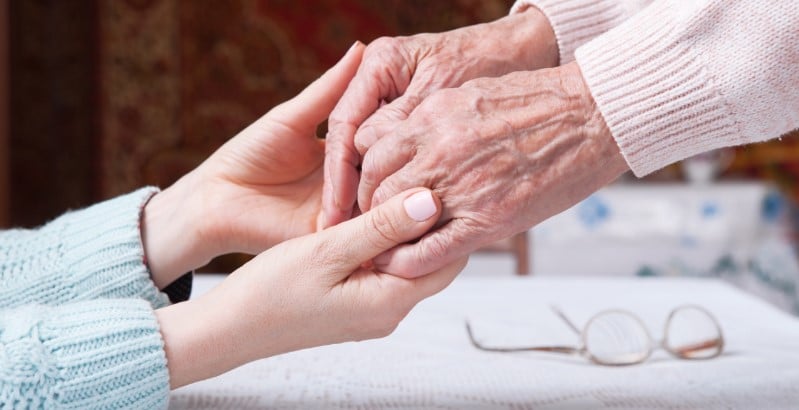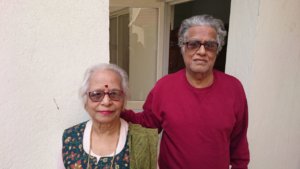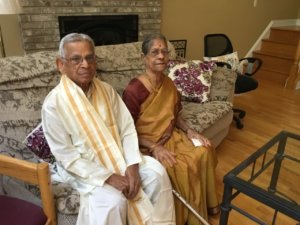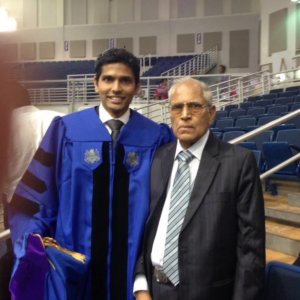Life
As the Years Go Passing By

Representational Image
Bigstock
Assisted living facilities and doorstep services for the elderly are making lives easier for NRIs and their India-based parents.
Most NRIs are concerned about the health and well-being of their ageing parents who live in India. Empty nests and nagging age-related issues can make many parents feel neglected. But with assisted living facilities and at-home- healthcare services for the elderly gaining ground in India, NRIs can now breathe easy.
Organizations like Hyderabad-based Kshetra aim to provide a good quality of life to their elderly residents, and offer multiple levels of care to meet their changing needs with progressing age. “The facility houses an elderly from the time he or she is independent, to when he or she is fully dependent, until the point where hospitalization is needed,” says director Pavithra Gangadharan.
Besides residential facilities, at-home services for parents of NRIs who choose to stay at their homes, are also gaining popularity in India. Samvedna Senior Care provides home services to the elderly in Delhi. “Our home services cater to two basic needs — helping seniors ward off loneliness and assisting them with general well-being and coordinating timely medical help,” says founder Archana Sharma. “We also work with dementia patients and carry out various mind stimulation and recall therapies and interventions.”
The organizations work to keep its aged clients happy and healthy so they enjoy the golden years of their life. ElderAid in Bengaluru, founded in 2015, provides a range of services, including providing emergency assistance, providing a full-time caretaker, accompanying clients to the hospital, running errands, and conducting risk assessment of their home.

ElderAid clients Nagarjunan and wife Renuka
From helping the elderly clients with their routine outdoor chores, to taking them to rejuvenation centers and even arranging for their pilgrimages or holidays, these organizations try to fill in every requirement that they are dependent for. Kochi-based Kerala Care Foundation, which provides at-home services for parents of Malyali NRIs, for instance, helps get aged parents enrolled into an old-age home, and also provides at-home assistance by providing a nurse or cook to the elderly parents of NRIs,” says managing trustee Sunil Njavalli.
An important element for many centers is to ensure that their infrastructure is senior friendly. Kshetra, for instance, facilitates therapeutic activities for patients, and has facilities to take care of those who are bedridden. About 90 per cent of their residents are physically dependent, and most of them suffer from disorders such as Alzheimer’s and Parkinson’s.
The factors that prompt the elderly and their NRI children to opt for these organizations are varied, but the primary reason is to help them feel less lonely. For many NRIs who have parents suffering from ailments, an assisted-living center offers a huge support. Nittala Narasimhamurthy, a retired statistics professor who is now a resident of Kshetra, feels that the organization has been a pillar of strength for him. “My father suffers from dementia and the biggest support he needed was an institution’s understanding of patients’ mental health issues,” his son Vivek Nittala, a New York-based lawyer, tells Little India.

Kshetra residents Ravi Venkata Naidu and his wife Jhansi Laxmi Devi Naidu
Also happy at Kshetra are Ravi Venkata Naidu and his wife Jhansi Laxmi Devi Naidu, who have been living here since September 2016. “We couldn’t maintain the house all by ourselves and figured that such a center was the best option for us,” says Naidu, whose New Jersey-based daughter arranged for their stay at the facility.
With nearly 50 per cent of their clientele being parents of NRIs, specialists at Samvedna serve as a friend, companion and guide to the elderly. The organization personnel visit their homes for a couple of hours 2- 3 times a week, and engaged them in intellectual discussions, board games, cards and other mentally stimulating activities.
Elderly parents are also accompanied for regular visits to the doctor, bank and other institutions, and also an occasional outing for coffee or lunch. Services are tailormade according to the specific needs and health conditions of each parent. For many parents, it is these doorstep facilities provided by organizations that matter, says ElderAid founder director Dr. Vandana Nadig.
After every visit, children of NRI parents are sent e-mail reports updating them about the particulars of the visit.
Despite the popularity that these organizations are gaining, they also face various challenges. The biggest struggle is making the elderly realize that they need help. “It is tough to make the elderly come to terms with the fact that they need help and it would make their lives easier,” explains Sharma.
It is mostly when parents start facing critical health issues that the actual need for assistance is realized. “In October last year, after I fell ill, my husband found it extremely difficult to manage the house as well as my medical condition,” recalls Santosh Sarin, a 78-year-old homemaker, adding that it was her United States-based sons who arranged for Samvedna Senior Care’s staff to visit them and provide medical assistance.

New York-based lawyer Vivek Nittala with father Nittala Narasimhamurthy, who now lives at Kshetra
Thalainayar Subbayyar Nagarjunan, an 83-year-old former scientist, also narrates a similar situation the family faced. It was when he fell very sick that his wife, Renuka Nagarjunan, contacted ElderAid, says Nagarjunan, whose two daughters live in the United States and Canada, respectively.
Since the organizations provide varied services according to the specific needs of clients, their fee also differs accordingly. While Kshetra works on a monthly rental model and charges between Rs 25,000 and 40,000 a month, depending on the level of care needed by the resident, Kerala Care Foundation offers lifetime NRI Cards ranging from Silver cards that cost Rs 100,000 to Diamond cards for Rs 500,000. The charges for specific services offered by ElderAid start at Rs 1,900 a month while Samvedna Senior Care offers plans starting at Rs 12,000 per month.
The lacunae the organizations serve to fill for their clientele are fast making them gain acceptance in Indian society, which for long looked down upon assisted facilities for the elderly. Many of them are now looking at expanding in other cities. Samvedna Senior Care is looking to venture into Bengaluru, Chennai and Mumbai. With many happy residents, Kshetra is planning to establish a second unit in Hyderabad this year that will focus on Alzheimer’s and dementia care.
Piali Mukherjee, a United States-based biotech researcher who has signed up with Samvedna for her mother Meena Mukherjee, who lives alone in Delhi, points out how important it is for the organizations to support the parents with kindness instead of making them feel dependent. “It is a service that does not impinge on her independence, but supports her,” she says.




You must be logged in to post a comment Login